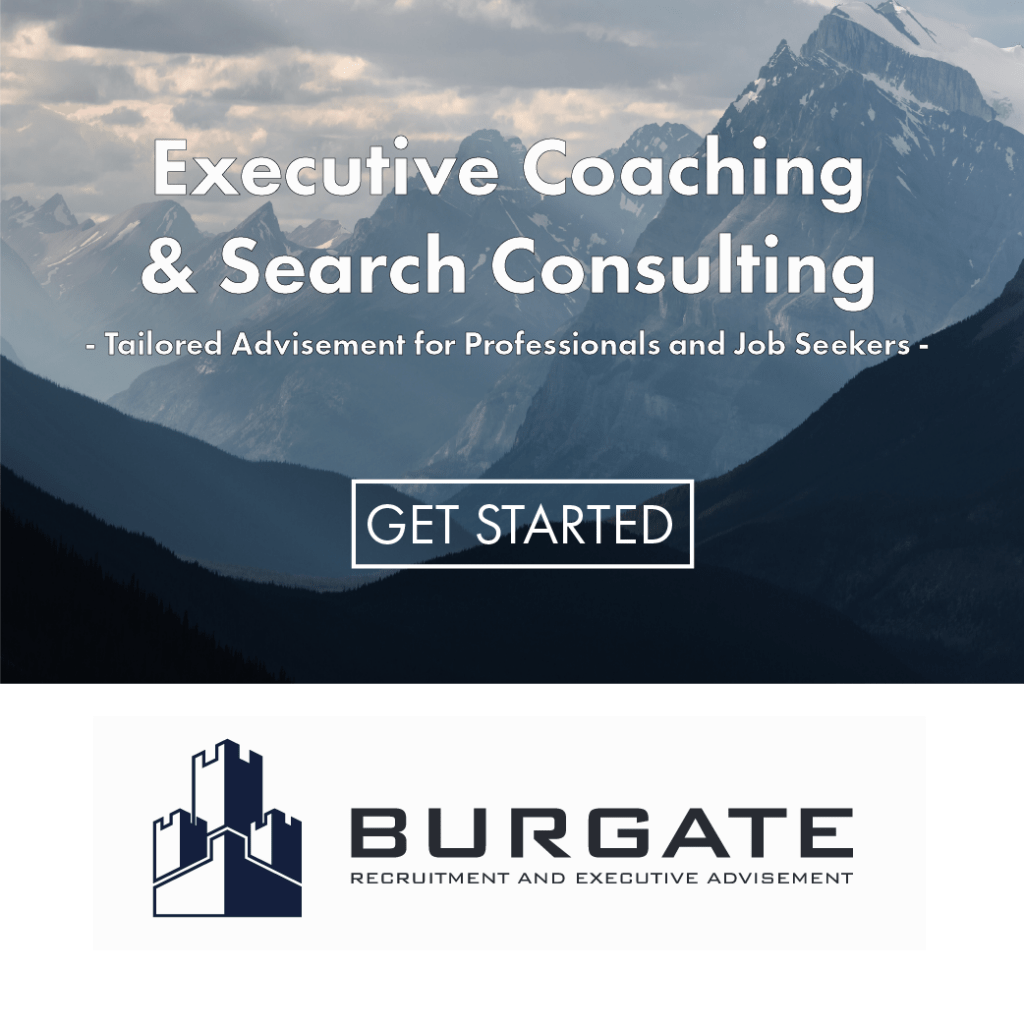Like the emergence of that first daffodil in Spring and as a sign of good things to come, your efforts in conducting your job search are finally showing signs of promise.
You have landed your first interview. Great job!
Yes, interviews can be hard to obtain and this is surely a time to pause and celebrate. In fact, as an Executive Coach and Job Search Counselor, I have observed candidates who took up to 6 months before they received their first interview request and others who were invited to talk to a hiring manager only a few days into their job search.
The process that you have been working on, well it is good to know it works. However, before you start celebrating like the Atlanta Braves in 2021, remember that there is no trophy (yet).
So high-five the family, go out for dinner, raise a glass, but tomorrow it is time to dig in, prep, and Ace the Interview.
Regardless of your path to this point, it is important to pause and reset your emotions, energy, and confidence toward being the best candidate in the process for the targeted organization. Your background, experience, persona, and applicability to the general market have all been set. There is nothing you can do now to change your qualifications; you are who you are. However, now is the time to best present yourself and align the mind of your prospective employer on why you are the best candidate for the role.
There are several maxims that I will share that will best position one for distinguishability in any job market for any opportunity.
Be Confidently Humble
Generally, good people like to hire good people. Perhaps to this point, you have been thru the wringer in your search journey and it has taken some time to secure this first interview. Or maybe this is your fifth 1st interview in a short amount of time.
Regardless, the fact that you have obtained this interview should be a moment that instills in you a sense of accomplishment and should move your confidence meter up a notch or two.
It is important to enter into the interview process confident, yet humble. I can assure you that over the years I have seen overconfidence absolutely knock the best-qualified candidate out of the process. And I have seen a lack of confidence cut the process short on a person with experience that best aligned to the role.

So in the end, your goal is to come across as a confident, humble, interested, and experienced problem solver for the prospective organization. Be yourself, ask good questions, share good stories, and attempt to honor and personally connect with each person in the interview process.
From the office receptionist to the CEO, everyone is watching and the biggest assessment they are making is in your alignment to the culture of their team.
Dress For Success
We could definitely go off on a tangent on this axiom, but it is still important to dress like you already have the job. First presented in a 1975 book by John T. Malloy, this topic is often debated in current times.
No, you do not need to wear your power suit to each and every interview, but you do want to present an image that aligns with the company you are targeting.
Perhaps the company abides by professional dress, for others maybe they carry a hipster vibe. Regardless it has been proven time and time again that there is a subconscious bias that can occur in that initial impression that you set when you walk into an interview.
One could choose to go against the grain and exude your individuality and that is perfectly ok. However, if this is the job that you want, then this is just one potential roadblock to consider taking off the table.
Tap Your Network
In preparation for your discussions with a potential employer, it is prudent to check your network for key contacts who may have knowledge about the company. Perhaps a good friend has worked at the company or has been a trusted vendor. Others may know someone who knows the organization in some form and is willing to make a connection.
In any of the above cases, this is an opportunity to learn more about the company prior to your first visit.
One caveat that I would suggest is to be somewhat careful (unless in very large organizations) in networking directly with contacts who are currently in the company. In some cases, the search might be confidential or minimally shared across the organization and these interactions could result in some internal feedback loop where your intentions could be questioned. This advice is hard to accept when our intentions are pure, but I have seen many heavy-handed HR professionals or hiring managers pass on a candidate and did not appreciate these probes into the company outside of their standard hiring process.
Research the Company, Industry, and Competition
So often a candidate will approach the interview process with an expectation that they are interviewing the company, rather than being interviewed for the job. While this is absolutely in play and you are in fact using this process to further evaluate your own fit to the company, making this one thing, the main thing will likely not lead to success in most hiring processes.
Rather it is important to research as much as you can about the company, their industry, and competition. Whether you are interviewing for a mailroom position or the head of a department, you are going to want to arm yourself with knowledge around how the company makes money and whom they serve. Yes, your skills and ability to do the job are important, but if you want to be seen as a top candidate, get to know as much about their business as possible.

If this is a public company, read their annual report and the CEO’s letter to shareholders, and know their current stock price and history. For a private company research press releases and any mention in industry publications. Seek out this information and determine how best to insert what you have learned into the conversation.
Stalk the Interview Participants
Similar to researching the company, it is also important to seek as much information about each interview participant with whom you will be meeting. Where did they grow up, where did they go to school, where have they worked previously, how long have they been in their current role? Have they been mentioned in any industry publications? Do they sit on a board or serve in a non-profit? Where do they go to church, attend a mosque, or synagogue? What is their favorite color?
Seriously this information is out there whether on the web, social media, or in professional networks. As referenced earlier you might even have contacts who know someone in the process and can tell you more about their background. The key here is to relate and come across as someone generally interested in them as a person and tie in something in your background that might be relatable.
Obviously, the title of this axiom notwithstanding, there is a fine line that you don’t want to overstep and come across as a little too informed. However, you would be surprised when you simply mention one item in their background, draw alignment, and how it can get the interview off to a great start.
Have a List of Questions
Q: “Do you have any questions for me?
A: “No I am good your team has been very informative in each of our discussions today.”
This is absolutely NOT the best way to wrap up an interview. There must be two or three questions that you are ready to ask each interviewer about the role, company, leadership team, culture, or go-forward opportunity. This could be a clarification of an earlier point, introduction of a new topic, or simply asking a question regarding their overall experience as an employee in the company.

And by all means, take notes. Yes, it might seem like a no-brainer, but bring a pen and a portfolio pad of paper.
Finally and my favorite all-time question is: “Was there anything in our discussions today that would prohibit me from being offered this opportunity?”.
And P.S. when wrapping up the interview day, generally with the hiring manager, express your strong interest in the role and desire to join their organization.
Stick the Landing
The interview is complete and you ended your time with the company in asking for the job. You made a good impression and there is a high probability that you are moving forward toward a potential offer.
But your work is not done.

If you truly want to stick the landing, there is one final step that I always recommend in the process.
Yes, you need to send a thank-you note.
It is important that you promptly reach out to each interviewer separately with a personal note of thank you. It should include thanking them for their time, mentioning something of relevance in the interview, and closing with an interest in moving forward in the process. Consider that it is best to write a different note to each interviewer, not simply repeat what has been said to others.
Email is appropriate, connecting on your favorite professional network is expected, but if you truly want to stand out also send a hand-written note. Arriving 2 or 3 days after the interview as the company is making decisions on the final candidate, trust me, this might just be the differentiator that puts you on top.
This is the seventh in a series of articles for my upcoming book, “How to Hack Your Next Job Search”. For my readers, I will be sharing insight, observations, and specific coaching on how best to conduct a job search. These strategies are simple, yet diverge greatly from most traditional approaches. It is my goal to share a proven process and cultivate a mindset that will elevate you into the top 5% of job seekers in any particular market or industry.
I. Deciding to Take Action | How to Hack Your Next Job Search
II. Approaching Your Search Like a New Job | How to Hack Your Next Job Search
III. Begin With Realistic Expectations | How to Hack Your Next Job Search
IV. Rethink the Resume | How to Hack Your Next Job Search
V. Uncovering Hidden Job Opportunities | How to Hack Your Next Job Search
VI. Addressing Gaps in Employment | How to Hack Your Next Job Search
VII. Ace the Interview | How to Hack Your Next Job Search
VIII. Defining Your Personal Brand | How to Hack Your Next Job Search






Amazing article as always. Thank you for the insight!